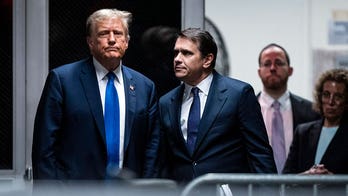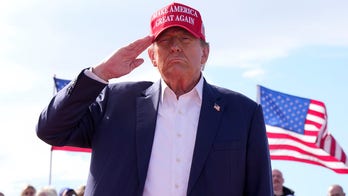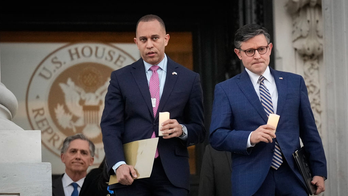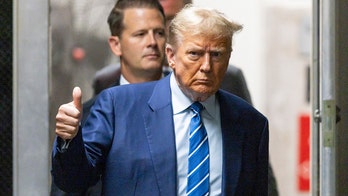One of the biggest questions being asked ahead of the G-7 summit in Taormina, Italy, is whether President Trump will fulfill his campaign promise to pull out of the Paris Agreement on climate change or if his European counterparts can convince the U.S. leader to keep his country in the historic – and controversial – accord.
With Trump’s inner circle split on the issue – climate change skeptics like chief strategist Steve Bannon and EPA administrator Scott Pruitt want the U.S. to drop out of the agreement, while former ExxonMobil CEO and current Secretary of State Rex Tillerson, Trump’s daughter Ivanka and son-in-law Jared Kushner are in favor of remaining in the accord – analysts say that G-7 leaders have a prime opportunity to make their case to the U.S. president.
“What we have seen from Trump is he takes personally the one-on-one talks he has with other world leaders,” David Waskow, director of the World Resources Institute’s climate team, told Fox News. “That kind of persuasion can have some real effect if it is delivered in a very personal way.”
The rest of the G-7 nations – Canada, France, Germany, Italy, Japan and the United Kingdom – are all strong supporters of the Paris Agreement, as are the other 188 countries that have signed it, and the idea of the U.S. withdrawing from the accord has become a global concern. The U.S. is the world’s second-largest emitter of carbon dioxide and its adherence to the emissions-cutting deal penned under the Obama administration is seen, by some, as vital to keeping other nations in compliance.
A U.N. panel of climate scientists says it is at least 95 percent probable that man-made greenhouse gas emissions -- especially burning fossil fuels -- are the main cause of climate change since 1950. In each of the past three years, global average temperatures have hit record highs, and the continued warming of the planet is projected to cause worsening droughts, sea level rises, floods, heatwaves and extinctions of wildlife.
On the campaign trail last year, then-candidate Trump was highly critical of the Paris Agreement – promising to “cancel” the deal and calling climate change a hoax perpetrated by the Chinese – and since taking office in January his administration has rolled back a number of Obama-era environmental regulations in the hopes of breathing new life into the struggling coal and fossil fuel industries. The accord has no sanctions for non-compliance but has a principle that nations will set ever tougher goals for action this century.
In the last month, however, Trump has wavered on his pledge to withdraw from the agreement as he faces not only a divide over the issue within his own White House but pressure from a diverse and large number of industries. Retail giants like Walmart, tech companies such as Apple and even fossil titans from Chevron to Royal Dutch Shell have all voiced support for the accord.
“It would be unhelpful on a number of fronts,” Ben van Beurden, chief executive of Royal Dutch Shell, told the Financial Times this week about the possibility of a U.S. withdrawal. “With the U.S. being the largest investment destination for a company like Shell, yes, I think I would regret having a lot of business here that potentially could be at a disadvantage because of [the] implications of that decision to pull out of Paris.”
G7 leaders need to play to the U.S. strengths and show Trump that there is a big benefit to staying in the agreement for the U.S. economy and the job market.
While there are arguments that a U.S. withdrawal from the Paris accord could harm prospects for cooperation with other G-7 nations on other issues from trade to national security, experts say the best route European leaders should take to convince Trump to stay in the Paris Agreement is to highlight the economic risks – and not the environmental ones – that withdrawing from the deal could entail.
“The Trump administration would be leaving a huge economic opportunity on the table if the U.S. leaves the agreement,” David Cash, the dean of the John W. McCormack Graduate School of Policy and Global Studies at the University of Massachusetts Boston, told Fox News.
Cash said that as strides continue to be made in alternative energy sources like offshore wind, solar and electric cars, countries and companies will continue to expand their investments in so-called green energy.
“It’s hard to see a long-term, robust industry based on fossil fuels as all the large fossil fuel companies are diversifying and see themselves as energy companies not just oil companies,” Cash said. “G-7 leaders need to play to the U.S. strengths and show Trump that there is a big benefit to staying in the agreement for the U.S. economy and the job market.”
Along with the support from European leaders and business magnates, the Paris Agreement is also popular with the majority of American voters.
In a nationally representative survey conducted last November after the election, The Associated Press found that seven in 10 registered voters say the U.S. should participate in the Paris climate agreement. Only 13 percent say the U.S. should not.
A majority of Democrats and independents, as well as half of Republicans, say the U.S. should participate. Only conservative Republicans are split, with marginally more saying the U.S. should participate than saying we should not.
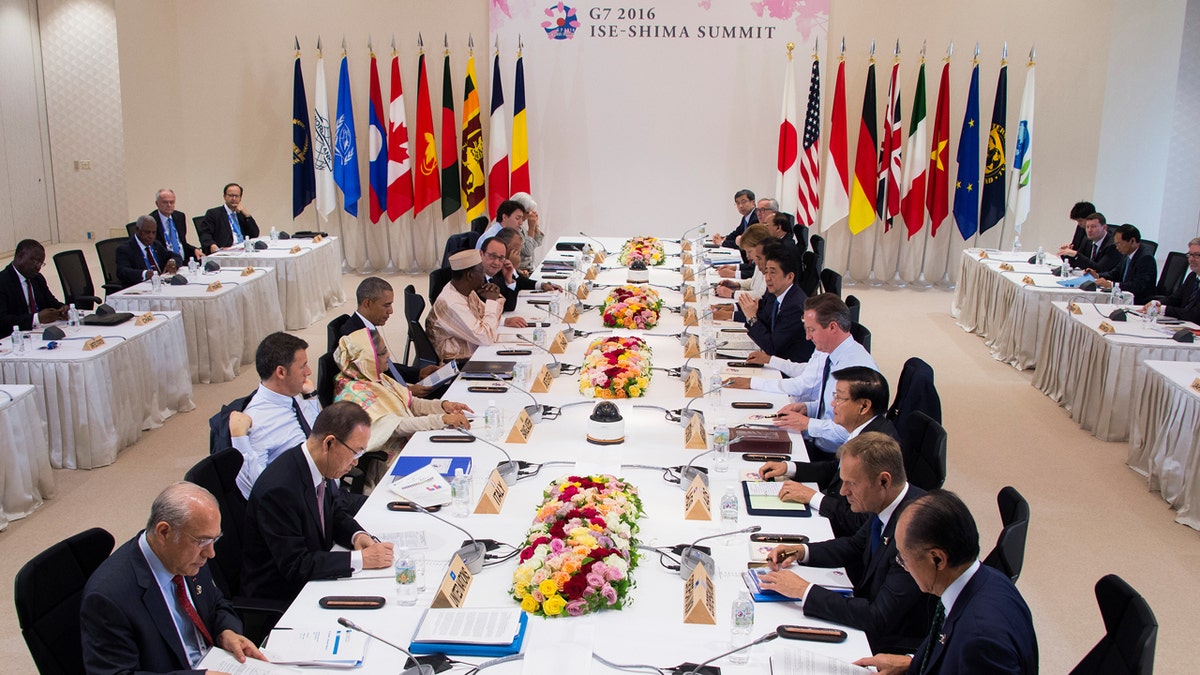
On Thursday, a group of 40 Senate Democrats sent a letter to Trump urging him not to withdraw from the Paris agreement. They argued the move would not only hurt the environment but also the U.S.'s standing on the world stage.
"The policies in regards to climate change are not only good for the enviroment; they're good for our economy, they're good for our country," Sen. Ben Cardin, D-Maryland, said at a press conference in Washington D.C. "The agreement was signed by almost 200 nations, if the U.S. was to pull out we would be joining Syria and North Korea."
Conservatives and free market thinkers, however, want Trump to follow through with his promise to exit the deal, claiming it wages “regulatory warfare” against America.
“The Paris climate treaty is an all-pain-for-no-gain agreement that will produce no measurable climate benefits and exacerbate energy poverty around the globe,” Myron Ebell, former head of Trump’s EPA transition team and a director at the Competitive Enterprise Institute, told the Guardian.
As the president has delayed making a decision on the climate agreement numerous times since taking office earlier this year, the only certainty is that no decision will be made until Trump returns from his first trip abroad as president.
"The more opportunities we have to make the case for staying with the agreement, the better," Thoriq Ibrahim, environment minister of the Maldives who chairs the Alliance of Small Island States in Bonn, told Reuters.

